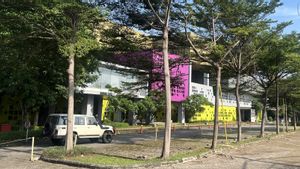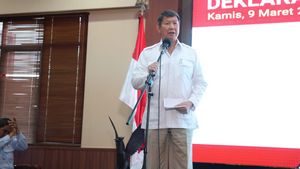JAKARTA - The Ambon City Environmental and Waste Service (DLHP) recorded that the percentage of plastic waste deposits in the capital city of Maluku Province reached 30 percent of the total waste volume of 246.74 tons per day.
"The average is approximately 30 percent of plastic waste produced every day in Ambon City out of a total volume of 246.74 tons of waste per day," said Ambon Mayor Bodew Wattimena, in Ambon, Saturday, quoted by Antara.
He said plastic waste is very dangerous for the environment, because it is difficult for the soil to break down, so the government continues to try to reduce the percentage of plastic waste.
Currently, the Ambon City Government has been helped by the presence of PT Million Ambon waste which is processing plastic.
The plastic processing plant located in Hutumuri Country, South Leitimur District, helps the government in efforts to reduce plastic waste, by processing 100 to 150 tons of plastic waste every month.
"The recycling plant will process the plastic waste that has been sorted and cleaned into plastic ore to be sent to Java and then reprocessed into plastic products," he said.
He admitted that the government's intervention in waste in Ambon City had been carried out with various efforts, starting from regulating waste disposal times to temporary disposal sites (TPS) and transporting to final disposal sites (TPA).
The management of plastic waste through waste banks in Reuse, Reduce, and Recycle Waste Management Sites (TPS3R) to restrictions on the use of plastic packaging.
Various programs have been carried out in collaboration with the Blue Sea Clean City or Clean City Blue Ocean (CCBO) - USAID is expected to change the paradigm of waste management in Ambon City.
SEE ALSO:
The CCBO program can help with waste problems in Ambon City, especially teaching waste management.
The waste problem has become a global, regional, local, and local problem, including in Ambon City because the waste produced per day ranges from 246.74 tons, while the City Government's transport capacity is only 185.5 tons per day.
"With this limitation, waste is a big problem for Ambon City. It is proven that piles of garbage are still in all corners of the city and difficult to resolve in a short time," he said.
The English, Chinese, Japanese, Arabic, and French versions are automatically generated by the AI. So there may still be inaccuracies in translating, please always see Indonesian as our main language. (system supported by DigitalSiber.id)
















